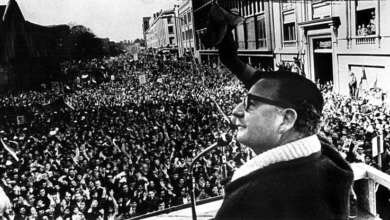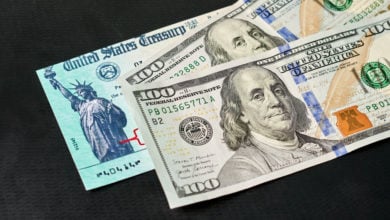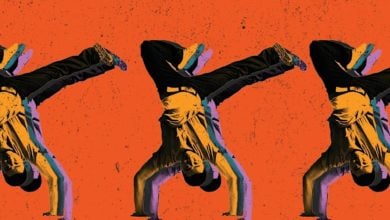Photo: Glenn Burke during his time playing for the Los Angeles Dodgers
This month, the Los Angeles Dodgers hosted their annual Pride Night. For the first time, the event honored the late outfielder for both the Dodgers and Oakland Athletics Glenn Burke. Burke made history as the first ever Major League Baseball player to come out as gay, at a time when openness within such a heavily homophobic culture was unheard of.
It is important during Pride month to recognize not only the depraved bigotry that institutions such as the Dodgers, Athletics and the MLB as a whole tolerated and fostered, but the courage and integrity those such as Glenn Burke exhibited and maintained as a gay baseball player. Any progress around LGBTQ acceptance in professional sports we see today was pioneered directly by those like Burke who, amidst narrow-minded hatred, were able to maintain exemplary performance on the field.
A rising athlete
Glenn Burke, born in 1952 in Oakland, California, had an early propensity for sports. He thrived not only on the field, but on the court as well, exhibiting a deep talent in basketball. As told by his friend at Berkeley High School, “Glenn did moves in 1970 that Michael Jordan did in 1991.” The school’s basketball team won the state championship, and Burke received the honor of Northern California’s Player of the Year.
It came as a shock to some to see Glenn develop professionally as a baseball player, accelerating into the major leagues by the latter half of the 1970s. By 1977, Burke began his rookie career with the Los Angeles Dodgers, receiving little field time but known as a lively team member. This spirit led to the moment when Burke and fellow Dodger Dusty Baker celebrated the latter’s 30th home run of that season with what would later be known ubiquitously as “the high five”. Today Burke and Baker are widely credited with inventing the gesture.
Big league bigotry
Unfortunately, as Glenn Burke’s personal life became known to the Dodgers players and management, their backwards and disgusting treatment of him increased. Al Campanis, the general manager of the Dodgers, became increasingly hostile to Burke. Campanis, who would eventually be fired for racist and anti-Black remarks given on Nightline in 1987, allegedly attempted to bribe Burke to get married – a $75,000 offer which Glenn refused outright, never desiring to live a lie.
Still, Burke felt the pressure to overperform to compensate for prejudices. In a 1994 edition of the Washington Post profile titled ‘Portraits of Gay America’, he remarked “I kept saying, As long as I bat .300, and do what I have to do, they can’t say nothing. I had to be a little better just in case they did find out. I was always thinking about it.” This pressure continued until Dodgers manager Tommy Lasorda encouraged a trade to the Oakland Athletics two months into the 1978 season, after Lasorda learned that Glenn and his son, Tommy Jr., had confided in each other after the latter had come out as openly gay.
While with the Oakland A’s, Glenn Burke immediately was subject to the same bigoted harassment that he experienced in Los Angeles. While being introduced to the rest of his teammates during spring training, then A’s manager Billy Martin called Burke a homophobic slur. Oakland management used any excuse they could to isolate and expel Burke from time on the field, and found their moment when he suffered a knee injury in 1980, sending him to the triple-A minor leagues.
Soon after Burke retired prematurely from professional baseball and lived in the Bay Area. Tragically he struggled with drug dependency, and like many gay men of his generation succumbed to AIDS-related complications in 1995 amid the U.S. government’s criminal inaction towards the public health crisis.
The ongoing struggle for LGBTQ respect in athletics
It is crucial that we remember figures like Burke who were trailblazers within society, encouraging the acceptance of LGBTQ people and refusing to back down when faced with bigotry. In 1994, a year before his untimely death, Glenn Burke stated that his mission as a gay ballplayer was to break a stereotype, saying “They can’t ever say now that a gay man can’t play in the majors, because I’m a gay man and I made it.” His ability to survive within Major League Baseball while weathering dehumanizing harassment for his sexuality paved the way for many LGBTQ athletes in all sports to be given the dignity and respect they deserve.
Currently, the MLB has no out gay players. However, public policy scholar Justin Wolfers writes:
There are 30 major league baseball teams, each with 40 men on their roster (all of them active once September callups take place), yet none of these 1,200 players have acknowledged being gay. If baseball players are as likely to be gay as other men their age — let’s go with an estimate of 1 in 25 — then the odds that none of these men are gay is one in two sextillion. A sextillion comes after a trillion, quadrillion and quintillion; it is a thousand billion billion.
Clearly, a lack of acceptance within the Major League remains to this day, at a time when sexuality and gender expression of athletes is coming under increasing right-wing, bigoted scrutiny.
Currently, 17 states ban transgender students from participating in sports consistent with their gender identity. This number is on the rise as more and more state legislatures continue their cowardly attack on trans youth. Yet it is important to note that these attacks are not supported by the broad majority of people. 2021 polling shows that two-thirds of adults nationally oppose any form of legislation that bans transgender student athletes from joining sports teams that match their gender identity.
It is clear that while these attacks are on the rise even decades after Burke’s career began within Major League Baseball, the vast majority of people reject them. While the fight for LGBTQ liberation and even simply acceptance is one that is still being fought, we must remember those pioneers such as Glenn Burke who refused to back down and set an example of courage in the cause we struggle for today.






